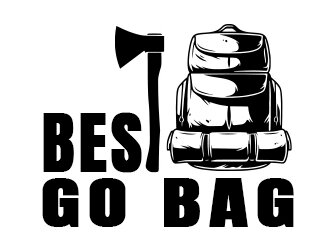A number can have a lot of power. If you are new to the exciting world of prepping or survival, you may not be familiar with the lingo yet —and that’s perfectly fine because that’s why you’re here! One of the rules we have amongst preppers and survivalists is called the Rule of Threes.
The Rule of Threes states humans can survive:
- Three minutes without oxygen.
- Three hours without shelter.
- Three days without water.
- Three weeks without food.
Note that this isn’t a guarantee. Take shelter, for instance.
If you fall into a large body of cold water and get stuck, it is highly unlikely you will last three hours. However, if you end up on dry land with nice weather, chances are you may live for over three hours.
These rules are to act as a guide and are a great quick reference that can help individuals understand their priorities when in an emergency situation, focus on what needs to be done and fall back to that to fight off confusion or fear.
Want to learn more? Here is everything you need to know about the Rule of Threes in survival.
Rule Of Threes
Let’s break down the Rule of Threes, one by one.
Rule #1: Three Minutes Without Oxygen
Obviously, any condition that threatens your breathing —or the blood’s ability to circulate oxygen —is an immediate survival situation.Here are a few quick tips if you find yourself without air:
- If you happen to find yourself in an enclosed space without an immediate way out, check to see if there is a way of introducing fresh air into that space before working on your exit plan. It’s also a good idea to slow your breathing as much as possible —this will also help to keep you calm.
- Two very basic first aid skills that everyone should know are CPR and the Heimlich Maneuver. Breathing in air, however, is just the first step –oxygen then needs to be circulated throughout the body, which is where CPR comes into play. Choking can happen in a blink-of-an-eye, often without warning, and when it happens, it needs to be addressed immediately. It’s critical to know how to perform the Heimlich Maneuver on someone else as well as on yourself.
Rule #2: Three Hours Without Shelter
The environment you are in is going to play a major role, but let’s assume most survival situations don’t happen on a warm, cozy beach. Odds are temperatures, rain, wind, snow, or worse will be involved, which accentuates the need for a good shelter. Remember, you only have three hours to shelter yourself in the toughest conditions.
Here are a few quick tips for surviving in the cold:
- Insulate your shelter by filling in any gaps in the building material.
- Avoid building your shelter in cold sinks. These are low areas where the temps will be much colder.
- Smaller shelters will be much easier to keep warm with a small fire and will retain heat better.
- Move around. If you don’t have a fire, be sure to do light exercises and work large muscle groups to generate heat.
Here are a couple of quick tips for surviving in extreme heat:
- Before you do anything else, set up a simple shelter first to avoid heat exhaustion. Keep in mind that shaded areas can be up to twenty degrees cooler than surrounding areas.
- It will help to keep a shelter cooler if there is a way for air to circulate through it.
There are many forms and styles a shelter in the wilderness can take, but in most cases, simplicity is best. Use fallen trees as a starting point – their size can often create little nooks and crannies after they’ve hit the ground that can be used as the skeleton of your eventual shelter.
Bringing packable survival tarps or blankets is also a smart way to stay ahead of the game. Paracord and a good survival knife are essential for shelter creation, and you would be surprised what you can become capable of with only a blade and some paracord as construction tools.
Rule #3: Three Days Without Drinkable Water
Water is essential for life —especially in the short term.
Go even one day without H2O in a survival situation, and you are sure to feel its effects. While some individuals have been known to go longer than three days without water, this is not something to mess around with.
Here are a few quick tips for finding H2O in the wild:
- Use an absorbent material -—like a cotton t-shirt -—to collect morning dew off of plants.
- Dig into damp soil and wait for groundwater to seep in.
- Listen for moving water, such as a river or stream.
Once you find a source of water, it will need to be thoroughly cleaned to prevent you from getting sick. You can do this by using your Stealth Angel Personal Water Filter, which eliminates 99.9999% of bacteria. It’s also a good idea to keep iodine tablets on hand like the Potable Aqua Drinking Water Germicidal Tablets, which work to not only kill bad bacteria but also eliminates viruses and giardia.
Rule #4: Three Weeks Without Food
How long a human can survive without food really depends on the amount of fat and muscle that person has in their body. As uncomfortable as it may be, we can go a pretty long time —roughly three weeks —without eating a single thing.
In fact, food should be the lowest priority —but not ignored. Like with water, going without food for significant periods of time is not only uncomfortable but also reduces your ability to think and perform.
Here are a handful of quick tips for finding food in the wild:
- Insects like crickets and beetles are usually safe to eat, but bugs like spiders, scorpions, and centipedes are not.
- Stay away from bright colors. Generally, if something is a bright color, whether that is a plant or insect, chances are it is highly poisonous.
- Don’t eat a plant unless you can positively identify it. Many plants are toxic and look identical to other plants, so be sure you know exactly what plant you are working with before putting it in your body.
- Cook your food when you can. By doing this, you will kill off most of the parasites that might be living in the animal you are about to eat.
A Final Word
Survival is never easy, even in the best situations, and if you happen to find yourself in a survival situation, you’re probably not starting out in the best shape. However, with a little bit of knowledge, research, and following the good old Boy Scout motto of “Be Prepared,” you can help tilt the scales in your odds a little bit more.
Being prepared for an emergency can make all the difference in a survival situation. You can do this by first understanding the Rule of Threes, but secondly, by putting together an emergency survival kit.
Your kit should include all the essentials like a water filter, food, a flashlight, a survival knife, and of course, a first aid. Not sure where to get supplies? Check out Stealth Angel Survival.
Stealth Angel Survival is the premier site to find essential outdoors, hiking, camping, adventure, survival equipment, emergency preparedness kits, disaster aid supplies, and more. Whether you are planning for a camping trip with your family or stockpiling supplies, Stealth Angel Survival has everything you need.
Sources:
https://paleoventures.org/rules-of-3-for-survival/
https://www.medicalnewstoday.com/articles/324712
https://www.mayoclinic.org/first-aid/first-aid-choking/basics/art-20056637

